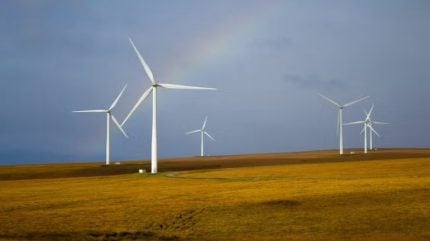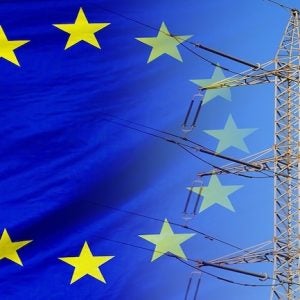
Long-term wind farm critic president Donald Trump sparked apprehension in the US wind energy industry by committing, just days before his inauguration, to “a policy where no windmills are being built”, onshore or offshore, during his presidential term.
Trump has committed to bringing in policies that would match his anti-wind pronouncements. In May 2024, he committed to halting US onshore wind “on day one.” And on 7 January, he called wind turbines a “disaster” and pledged a moratorium on new projects. At an event in Florida, he said that wind is “the most expensive energy there is”, which is a claim that contradicts the analysis of the US Department of Energy. Trump said US onshore wind is “many, many times more expensive than clean natural gas so we’re going to try and have a policy where no windmills are being built”.
In response share prices have fallen both at wind turbine manufacturers and at developers with exposure to the US onshore wind market.
Visible opposition
There is a degree of visible opposition to Trump’s plans for wind. He is not the only arbiter of what happens in the sector. Renewable energy continues to enjoy support in major Republican states, including Texas, because of its impact on investment and jobs. At the beginning of 2024, the US wind industry employed more than 120,000 people in all 50 US states, with total installed capacity of 151 GW. Trump is likely to face resistance at efforts to cut US investment and jobs.
He may also have limited influence over whether developers can build turbines on private land; and does not directly control the energy strategies of corporate off-takers that are demanding renewable power, including for data centres. But Trump could make it uneconomical to build wind farms if he wins support to end vital production and investment tax credits.
A few days before Trump took office the Biden administration extended wind and solar tax credits to make them ‘technology neutral’. As a result, they should also be able to benefit nuclear, hydropower and geothermal projects.
Trump has been more critical about the development of wind farms in other parts of the world than he was during his first term in office. He had a long legal battle ten years ago over an offshore wind project in UK waters that he said would ruin the views from his golf resort in Scotland, but has rarely singled out for criticism the pro-wind policies of other countries.
He has used a post on his Truth Social platform to call on the UK government to stop developing wind farms in the North Sea, and instead to accelerate oil and gas production. But there is no indication that UK prime minister Keir Starmer is ready to listen to demands from Trump, just as he is ignoring ongoing criticism from pro-Trump billionaire Elon Musk.






